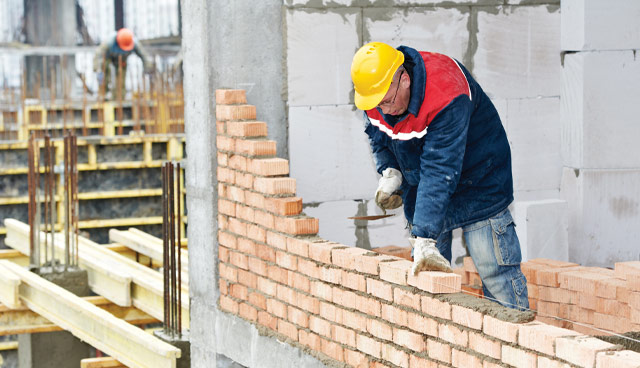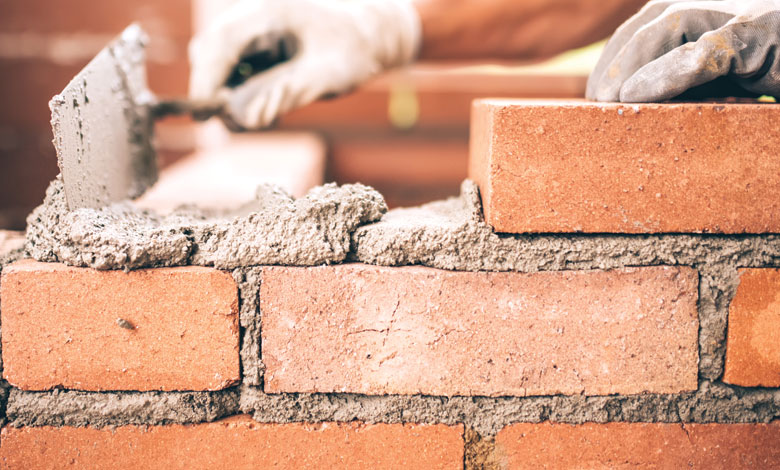
Partnership and planning key to tackling homelessness during Covid-19
10th July 2020
Interim Minister: Carál Ní Chuilín
10th July 2020Construction sector capacity

A major boost for the construction sector expected as a result of plans for enhanced spending on infrastructure, including in housing, will be impacted by the ongoing impact of Covid-19, writes David Whelan.
The return of the Northern Ireland Assembly and Executive in early 2020 brought with it fresh optimism for the construction sector in the form of various investment pledges in large infrastructure projects and the housing sector.
The volume of construction output has been on an upward trend in Northern Ireland since the last months of 2013. However, it remains well below the sector’s highs of late 2006. Despite the upward trend overall, the latest statistics for the last months of 2019 show that overall output had decreased by 1.3 percent on the same period of the previous years.
Prior to the Executive’s resumption, growth prospects for the sector were moderate, with housing expected to be the driver of any uplift. The Construction Industry Training Board (CITB) predicted a 0.8 per cent increase in construction input from 2019 to 2023, driven by the demand for social housing and steady output streams in the private housing sector. To address even this modest growth, the prediction was that the construction sector would need to create 2,500 new jobs.
Hopes that the levels of growth could be exceeded were assisted by the roadmap for the return of devolved government in January 2020. The New Decade, New Approach deal set out a pledge to include housing as a specific priority in any upcoming Programme for Government and outlined the intention of the Executive to “enhance investment and agree a target for a new social and affordable home starts”, as well as tackling a maintenance backlog on properties owned by the Northern Ireland Housing Executive.
Also included in the document were a number of pledges that should serve as an enabler of further housing development. For example, a move to reverse the ONS classification should facilitate housing associations to develop more social homes. Similarly, pledged investment in wastewater infrastructure could alleviate current restrictions on connecting new housing developments in over 100 towns in Northern Ireland.
The challenge for the construction industry has turned to one of skills capacity. Northern Ireland, like many countries, experienced a dramatic fall in construction following the financial crash, with a large portion of the sector either repurposing or relocating. Housing, of course, was not the only infrastructure spend pledge prioritised in New Decade, New Approach and it is highly likely that various projects could be competing for the relevant construction skills, if progressed on similar delivery paths. Coupled with this is the fact that the Republic of Ireland is more advanced in its 10-year roadmap for improved infrastructure, identifying early of the need to attract more skilled labour for construction. In March, the UK set out plans to invest £600 billion in infrastructure over the next five years. Skills, therefore, will be in short supply.
Covid-19
However, the outbreak of Covid-19 will undoubtedly impact on planned infrastructure spending. While it is yet unclear how the economic impact of management of the virus will affect governments’ planned financial spend on infrastructure, in Northern Ireland the construction sector has been one of the hardest hit.
While an initial pause on construction work has now been lifted, it’s unlikely that the sector will be able to return to pre-Covid output quickly. Recent research by the Ulster University’s Economic Policy Centre puts all three construction sub-sectors in the top 10 detailed sectors most impacted by Covid-19 restrictions and says that the impact on the sector in Northern Ireland has been disproportionate relative to its size. It estimated that while the sector accounts for 7 per cent of people in employment, it represents 12 per cent of those who are furloughed or laid off.
Economic analysis highlights that during lockdown, some 40 per cent of construction businesses had reduced working hours and that almost 60 per cent of firms in construction had laid off staff across the UK.
As attention turns more to the economic cost of Covid-19, the delivery of housing and infrastructure will depend as much on the capacity of the construction sector to deliver as it will on government appetite to allocate the necessary funding.






